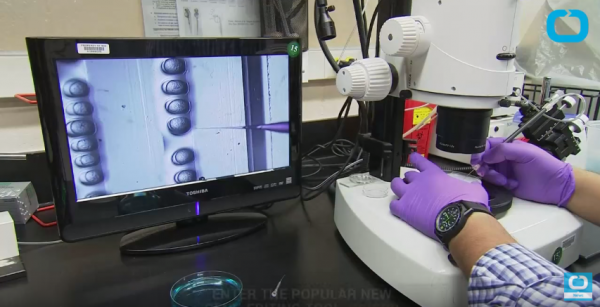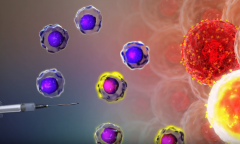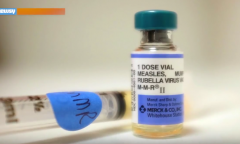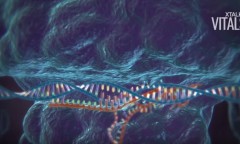By Prei Dy, | May 09, 2017

The HIV test kit was launched in the United Kingdom in 2016 to give people who do not want to undergo lab test or pre-testing counseling a more discrete alternative. (YouTube)
US scientists have successfully used the CRISPR/Cas9 gene-editing technology to remove HIV DNA from the genomes of living animals, eliminating the possibility of further infection.
CRISPR/Cas9 gene editing technique has been employed for the first time to shut down the replication of HIV and get rid of the virus in three animal models. The first type was infected with a latent HIV, the second one with actively replicating HIV in its system, and the last one with grafted human immune cells including T cells that contain latent HIV. HIV can hide in the immune cells that are supposed to destroy them. This is the reason why a cure for HIV is difficult to find.
Like Us on Facebook
Scientists successfully used a modified virus, attached to an adeno-associated virus that does not usually trigger a response in the body like other viruses, to deliver the CRISPR/Cas9 system to the cells of the infected mice. The system eradicated the HIV as the AA virus replicated. The researchers targeted four different HIV sequences at the same time, giving the virus a hard time to escape elimination by mutating its DNA.
After the mice were treated, scientists tested the HIV RNA levels. A new imaging system was used to observe viral replication in real time to see latent HIV reservoirs. The team tested the strategy in mice infected with the EcoHIV, which is equivalent to the human HIV-1 virus. Researchers found an excision efficiency as high as 96 percent.
"With EcoHIV mice, we were able to investigate the ability of the CRISRP/Cas9 strategy to block viral replication and potentially prevent systemic infection," Dr. Karmel Khalili, one of the researchers from Temple University, said.
After a single treatment, the latently infected human cells no longer have HIV DNA
Khalili noted that the result is the first evidence of HIV-1 being prophylactically eliminated using the CRISPR/Cas9 system.
"The next stage would be to repeat the study in primates, a more suitable animal model where HIV infection induces disease," Khalili said. "Our eventual goal is a clinical trial in human patients."
-
Use of Coronavirus Pandemic Drones Raises Privacy Concerns: Drones Spread Fear, Local Officials Say

-
Coronavirus Hampers The Delivery Of Lockheed Martin F-35 Stealth Fighters For 2020

-
Instagram Speeds Up Plans to Add Account Memorialization Feature Due to COVID-19 Deaths

-
NASA: Perseverance Plans to Bring 'Mars Rock' to Earth in 2031

-
600 Dead And 3,000 In The Hospital as Iranians Believed Drinking High-Concentrations of Alcohol Can Cure The Coronavirus

-
600 Dead And 3,000 In The Hospital as Iranians Believed Drinking High-Concentrations of Alcohol Can Cure The Coronavirus

-
COVID-19: Doctors, Nurses Use Virtual Reality to Learn New Skills in Treating Coronavirus Patients













